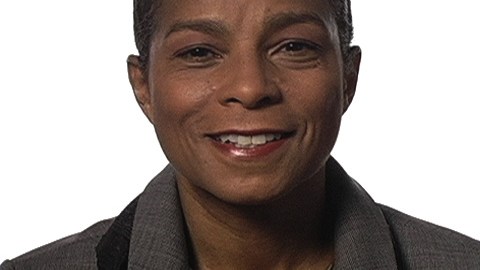Robert Wood Johnson CEO: It’s the Season for Action

Dr. Risa Lavizzo-Mourey, the CEO and President of the Robert Wood Johnson Foundation, talked to Big Think this summer about the challenges facing our health care system. Today, when we asked her what she thought now that Obama has specifically outlined his plan for fixing health care, she said that “the speech did what leadership speeches should do – it gives us clear vision, a solid sense of direction, and the will to stay the course.” She stressed the non-ideological, fact-based nature of reform, and expressed optimism that – if the government can pass a bill – the country’s health care infrastructure has the power and the will to adapt. The full letter is below the fold.
When the President last night told Congress and the nation that “now is the season for action,” I allowed myself the luxury of hoping that perhaps this time, for the first time, our national leaders and lawmakers finally are getting it – that health system reform is a journey, not a destination. As Tom Kean, our board chair, and I said in a Washington Times op-ed last week, many acceptable, bipartisan approaches have already been hammered out and discussed. Our leaders must rise above partisanship, reject ideological rigidity, set aside their pre-conceived notions and, working together in the public’s best interest, embrace compromise as a first choice, not as a last resort.
In our democracy it is the President who proposes and the Congress that disposes. It’s not always a polite process. Recently, we’ve seen how easily this all-American practice can degenerate into a political slug fest, when all that counts is who wins and who loses, the good of the country be damned. Meanwhile, critical problems go unsolved, huge numbers of our people continue to suffer needlessly, and our democracy itself is demeaned.
Over more than 60 years, this scenario has repeated whenever the cause of health reform rises to challenge the entrenched status quo. That, however, was then. This is now. Reform is at a new point in its long journey, and finally the terrain is strikingly more suitable to successful passage than ever before…
Here are three reasons why:
• Research – An unceasing and unprecedented torrent of data is defining in real time health care’s performance in every regard. We know what works, what doesn’t and why. We know how to strengthen what is weak, fix what’s broken, and what to do with what doesn’t work at all.
• Information – Now we know what’s been unknown before. The result: Today’s debate over health care is full of facts, not conjecture. False or uninformed claims are objectively and effectively dispelled. The focus has shifted from arguing over what’s wrong –that’s no longer in dispute – to agreeing on what to do about it.
• Answers – Through research, pilot programs, performance measures, modeling, and replicating successes, the field already has in play what the rest of the country is waiting for – once Washington gets its act together.
The truly hard work will begin when the political drama subsides, meaningful legislation emerges, and the President signs it into law. Even then, we must keep our eyes on the ball. Much of the current struggle is about health insurance reform. Yet to come are all those other issues we’ve worked so hard on together for so long – such as improving the quality and safety of patient care; shifting America from a system of “sick” care to one of prevention and “well” care; better managing chronic illnesses; strengthening nursing’s leadership and care at the bedside; revamping the public health infrastructure.
The President’s speech did what leadership speeches should do – it gives us clear vision, a solid sense of direction, and the will to stay the course. We can do this and do it best if, as a nation, we sustain a bipartisan will to act, cultivate the support of an informed public, and maintain a collaborative, inclusive climate for agreement and action. After all, our season of action to improve health and health care is 24/7 every day of the year, year after year.





